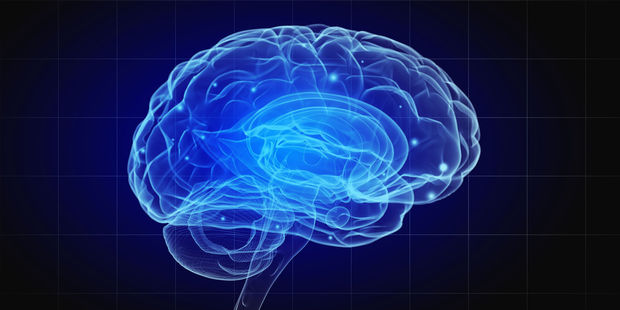$1m study: microchips that think like we do
Source: Jamie Morton
 Canterbury University scientists are developing new "neuro-computing" technology enabling machines to think in the way our own brains do. Caption: Sergey Nivens/RF123
Canterbury University scientists are developing new "neuro-computing" technology enabling machines to think in the way our own brains do. Caption: Sergey Nivens/RF123
Kiwi scientists have begun a million-dollar study compacting the amazing capabilities of brain-like computers into a chip that could fit into your smartphone.
The study, being led by the University of Canterbury, is part of a fascinating frontier of technology called neurocomputing, in which machines are being redesigned to function like the greatest computer ever conceived: our own brains.
The brain contains a network of neurons that are essentially connected by synapses; when we learn something, it's through the behaviour of these synapses changing.
"For example, when you associate a particular image with a particular idea, it's because of the pathway through the synapses which has been created," said Canterbury University's Professor Simon Brown, who is leading the study with colleague Dr Saurabh Bose.
While developers are still a long way from the ultimate goal of designing a computer that acts completely the way our brains do, some supercomputers have been built to have brain-like functions.
The Canterbury researchers are adapting the neurocomputing approach to small chips, containing networks made up of nano-scale junctions that act as tiny switches.
"On a simplistic level, the switches behave in a similar way to the synapses," Brown said.
The team was developing the network to perform brain-like functions such as forming connected pathways of synapses.
"Can we actually teach these networks to do calculations?
"Or can we teach them to do pattern recognition, which is one of the standard things that people think these networks should be good at, because this is one of the things that the brain is really good at."
By the end of the two-and-a-half-year project, Brown hoped to have a new world-leading company specialising in fabrication of neuromorphic computer chips.
"It's likely that it will perform some tasks like pattern recognition much better than an ordinary computer.
"One of the big advantages of moving from a supercomputer to a chip is that the chip should be able to do tasks with 100 times less power consumption.
"Of course, if you're using less power, that's what you want for mobile devices like drones and cellphones."
The potential was exciting.
"You can imagine all sorts of long-term applications; simple systems for security, recognising people walking across your property, through to medical images - you need to be able to pick out a pattern in a noisy MRI-scan, and maybe these chips would be able to help you do that much more efficiently."
The work has been supported to date by the MacDiarmid Institute and has just received a million-dollar grant from the Ministry for Business, Innovation and Employment.
Brown and Bose also recently filed a patent application which covers a new method for making neuromorphic chips.
"We think this is a big advance because our new chips work for months and months, whereas previous chips of this type only lasted for hours."
Making computers think like we do
Much of the buzz around "neurocomputing" has centred on IBM's TrueNorth processor chip, harnessing the power of a million digital neurons and 256 million programmable synapses.
Such technology - touted for potential roles in robots, self-driving cars and video analysis - has already been demonstrated to perform complex tasks, such as visually tracking people in real-time using image-recognition, at a rate impressively faster than what conventional computers are capable of.
But while the architecture was new, it was still based on traditional circuitry, requiring a large number of transistors to emulate each synapse.
Kiwi researchers have been leading pioneering efforts in the field.
An innovation by Auckland University of Technology scientists called the "NeuCube" could one day allow us to predict natural disasters in real time, warn us of coming strokes, improve treatment for such conditions as schizophrenia, or control robots through brain signals.
- NZ Herald
| }
|